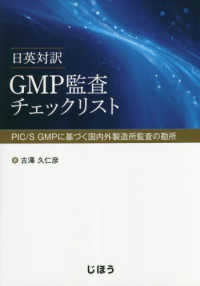Full Description
This book includes fieldwork from five continents and demonstrates the breadth of techniques used by environmental criminologists to understand crime.
Environmental criminologists seek to understand crime within the physical, and even digital, contexts where it occurs - believing that crime occurs when people converge in time and space and that the environment impacts the opportunity for crime. Understanding the environment aids the researcher in answering an essential question: what can be done to alter the place to prevent or reduce crime? However, to understand complex environmental influences, researchers need to engage in fieldwork. Fieldwork involves researchers entering the environment they are studying to observe, listen, and experience the surroundings in a way that influences their understanding of the place and people in the environment.
This book highlights the broad array of crime types - from package theft in the suburbs to poaching in the Nile basin - that environmental criminology is well suited to address. Finally, it advances methods and techniques, tests established protocols, and offers reflections on experiences during fieldwork, demonstrating the value of the techniques for environmental criminology and offering solutions to crime problems.
The chapters in this book were originally published in special issues of Criminal Justice Studies.
Contents
Introduction 1. Provoked poachers? Applying a situational precipitator framework to examine the nexus between human- wildlife conflict, retaliatory killings, and poaching 2. When a loved one is on community supervision: the crime controller strategies used by 'PoPPs' (parents/ partners/ peers of probationers and parolees) 3. Putting qualitative methodology in perspective: reflections on the relevance of fieldwork into the field of Environmental Criminology 4. Exploring the influence of daily microroutines on residential guardianship and monitoring patterns 5. Yelping about a good time: casino popularity and crime 6. Porch pirates: examining unattended package theft through crime script analysis 7. Fieldwork protocol as a safety inventory tool in public places








